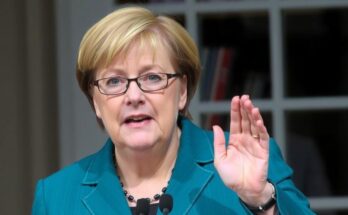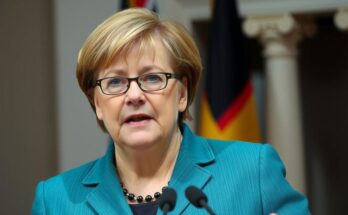Tunisia’s upcoming presidential election on Sunday presents President Kais Saied, seeking re-election, against a backdrop of political repression and economic hardship. With key opposition figures imprisoned and concerns raised about the integrity of the electoral process, this election will serve as a crucial indicator of public sentiment regarding Saied’s leadership amid Tunisia’s challenges since the Arab Spring.
Tunisia is poised to conduct its third presidential election since the onset of the Arab Spring on Sunday. President Kais Saied, who assumed office in 2019, is seeking re-election amidst significant political turmoil and a socio-economic crisis that has gripped the North African nation. International observers previously praised two presidential elections in Tunisia as democratic; however, the current election has drawn scrutiny due to numerous arrests of opposition members and concerns over the independence of the election authority imposed by Saied. Reflecting upon Tunisia’s evolution since the 2011 ousting of autocratic leader Zine El Abidine Ben Ali, it is evident that the initial hope for a successful democratic transition has faded amid rising unemployment and political unrest. While Saied ascended to power on a promise of renewal and empowerment of youth and local governance, his consolidation of power since a state of emergency was declared in July 2021 has polarized public opinion, with many Tunisians expressing discontent through opposition demonstrations. Notably, Saied’s primary challengers in this election are Zouhair Maghzaoui, a renowned politician critical of Saied’s policies, and Ayachi Zammel, a businessman currently contending with legal challenges tied to his election campaign’s integrity. This election will serve as a critical barometer of popular sentiment following years marked by repression of dissent, economic hardship, and a notable decline in voter engagement in recent parliamentary elections. The socio-economic climate remains dire, characterized by a high unemployment rate, especially among youth, and stalled negotiations for financial aid from the International Monetary Fund. Amid this turmoil, Saied’s administration has exhibited a controversial stance toward immigration, using inflammatory rhetoric against migrants, thus fueling xenophobic sentiment and increasing violence against them—a reflection of broader political discontent. Moreover, Tunisia’s foreign relations paint a complex picture, with the government striving to assert autonomy from Western influence while simultaneously maintaining trade ties with European partners amid rising international intrigue surrounding its political direction. As the electoral process unfolds, the integrity of Tunisia’s democratic framework remains in question, and the outcome may indicate whether Saied’s governance style will continue to resonate within the fabric of Tunisian society or provoke a deeper call for democratic renewal. Ultimately, this election stands as a pivotal moment, potentially determining the future trajectory of Tunisia’s political landscape and its citizens’ aspirations for a viable and participatory democratic process.
The upcoming presidential election in Tunisia marks a significant event in the country’s ongoing political evolution since the Arab Spring uprisings. Tunisia was initially celebrated as a beacon of hope following the successful ouster of dictatorship in 2011, leading to the establishment of democratic institutions. However, the political landscape has shifted dramatically under President Kais Saied, who has been accused of authoritarianism after implementing sweeping reforms that centralized his power. These reforms have been met with mounting public discontent and criticism from opposition parties, many of whom have faced imprisonment or exclusion from the electoral process. The economy continues to struggle, fueling political apathy and decreasing voter turnout in recent elections. Thus, the current political context is critical in understanding the stakes involved in the upcoming elections.
In conclusion, Tunisia’s third presidential election since the Arab Spring comes at a critical juncture for its democracy. While President Kais Saied appears poised for re-election amid a backdrop of political suppression and concerns over electoral integrity, the socio-economic challenges facing the nation and the plight of dissenting voices may shape the electoral outcome and future governance. The developments in this election will not only clarify public sentiment towards Saied’s rule but also signal broader implications for Tunisia’s democratic aspirations and political stability in the region.
Original Source: apnews.com




